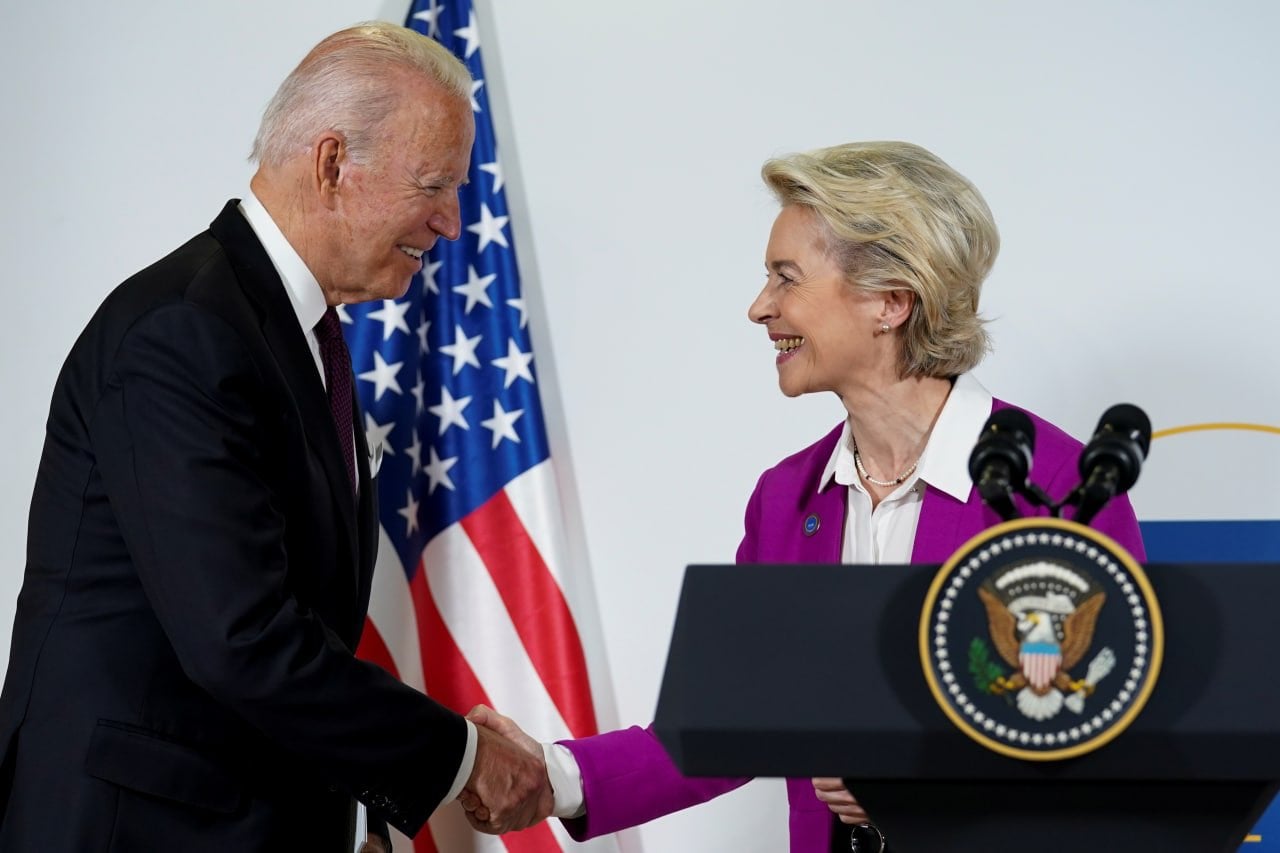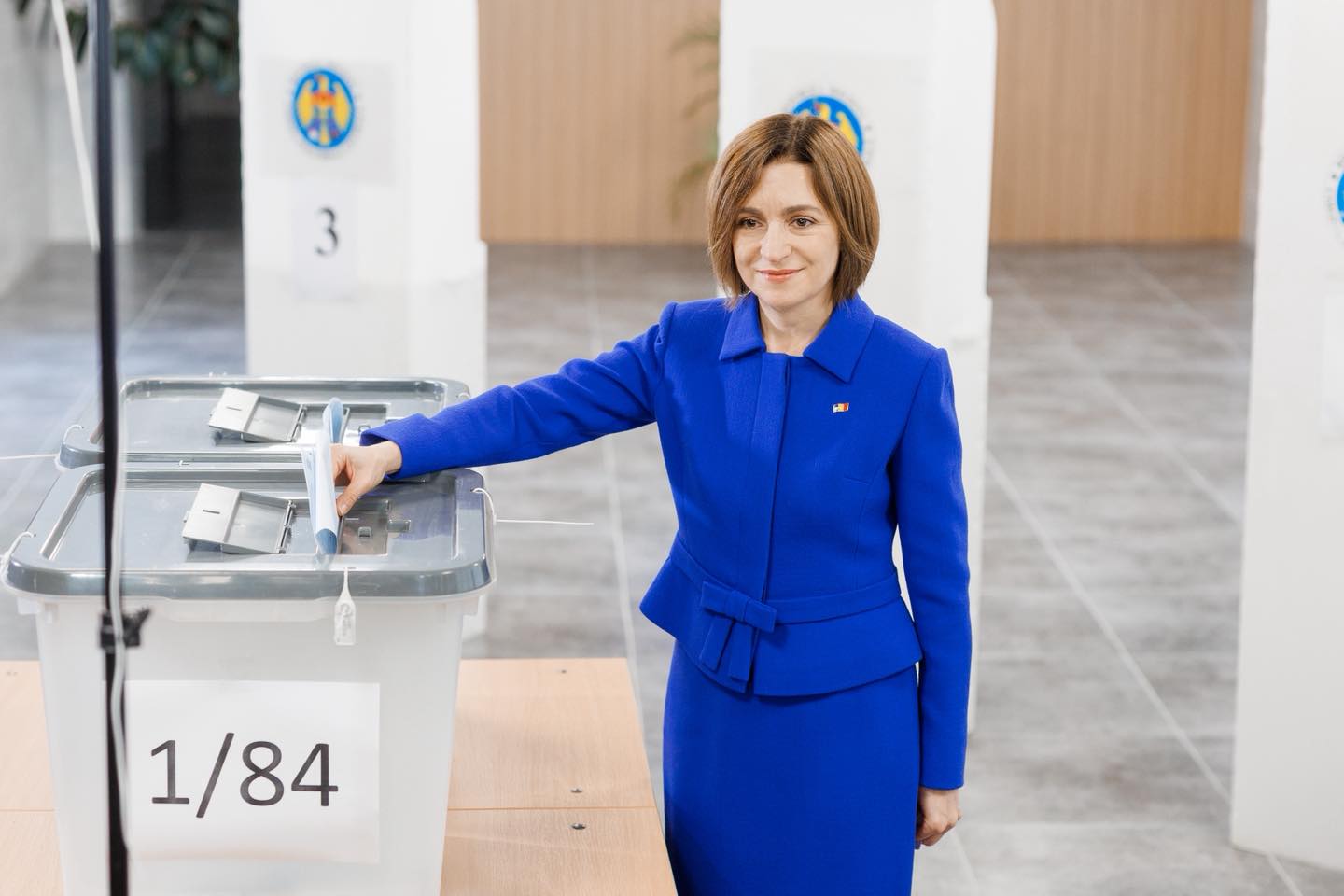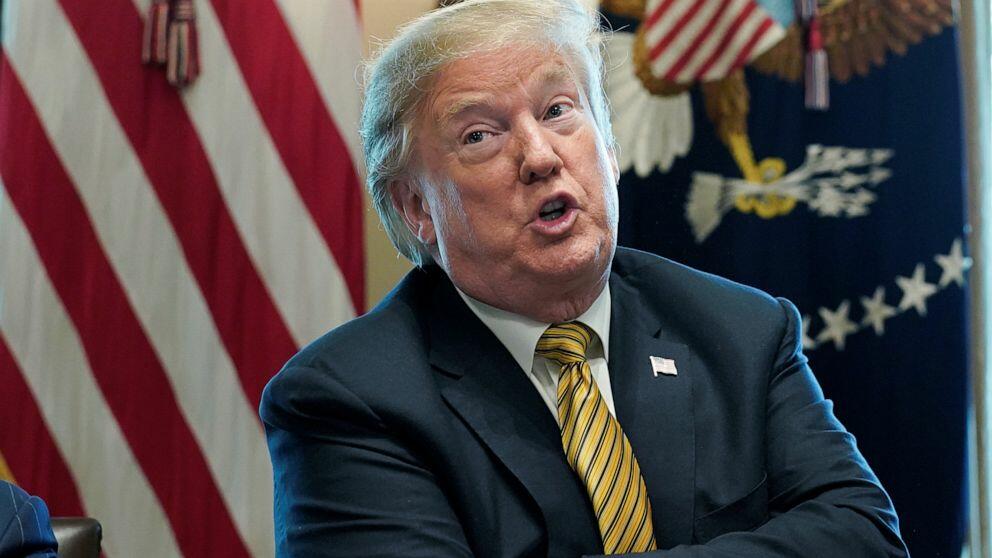Pe aceeași temă
Scopul acordului este scăderea dependenței UE de gazele naturale din Rusia și prevede livrarea în statele europene a minimum 15 miliarde metri cubi de gaze din SUA până la finalul acestui an și a minimum 50 miliarde metri cubi anual în anii următori, ceea ce ar reprezenta o treime din importurile anuale din Rusia.
Prin acest acord, UE se angajează să mențină o cerere constantă de gaze din SUA până în 2030.
Declarații Joe Biden:
Am făcut pași importanți pentru a furniza energie curată pentru a ajuta Europa să reducă dependența de gazul rusesc. Vom reduce importul de gaz rusesc în SUA. În timp ce UE continuă să renunțe la gazul rusesc, Comisia Europeană va lucra împreună cu SUA pentru a construi mai multă infrastructură pentru a primi gaz.
Este important să facem acest lucru și să nu intrăm cu scopul de a intra în conflict cu încălzirea globală. Trebuie să facem asta pentru a respecta regulile climatice și trebuie să construim infrastructura pentru energia curată, verde. SUA și UE vor lucra împreună pentru a reduce dependența de gazul rusesc (…). Siguranța este un alt element important de pe agenda noastră. Ne asigurăm că cetățenii noștri sunt în siguranță din punct de vedere al datelor, vom concura împreună pentru o economie digitală înfloritoare, SUA și UE lucrăm împreună la un proiect de a aduce împreună economiile noastre pentru că împărtășim aceleași valori. Toate duc la un angajament pe termen lung. Războiul n-a făcut decât să aducă mai aproape și să unească SUA și UE.
Declarații Ursula von der Leyen:
Parteneriatul transatlantic este mai solid ca niciodată, acest război este un eșec strategic al lui Vladimir Putin. Sancțiunile noastre îl aduc la limita răbdării. Continuăm să mergem mai departe (…) pentru rezolvarea unor probleme fără precedent. Lumea are o provocare fără precedent, tocmai de aceea este important să ne unim și să ne axăm pe refugiați, peste 3 milioane au plecat din Ucraina, jumătate sunt copii.
Vrem să ne diversifiăm importurile de gaze spre SUA
Am semnat un acordul cu SUA pentru a furniza Uniunii Europene cel puțin 15 miliarde de metri cubi de gaze naturale lichefiate în acest an, și cel puțin 50 miliarde metri cubi anual până în 2030. Această cantitate ar însemna o treime din gazele cumpărate anual din Rusia
Am ajuns la un acord de principiu pentru un acord între SUA și UE privind transferul de date în domeniul digital
Acordul vine la capătul după un tur de forță diplomatic la Bruxelles: summit NATO, summit G7, summit al Consiliului European – toate cu participarea președintelui SUA, Joe Biden.
Joi noapte, președinții Biden și Ursula von der Leyen semnaseră o declarație comună legată de invazia rusă în Ucraina și efectele asupra UE, unul dintre punctele documentului fiind tocmai asigurarea securității energetice a Europei.
Textul integral al declarației SUA – UE:
Preamble
The United States and the European Commission are committed to reducing Europe’s dependency on Russian energy. We reaffirm our joint commitment to Europe’s energy security and sustainability and to accelerating the global transition to clean energy. In condemning in the strongest terms Russia’s further invasion of Ukraine, we express our solidarity and support for Ukraine. We share the objective of addressing the energy security emergency – to ensure energy supply for the EU and Ukraine. We welcome the continued progress toward the physical integration of Ukraine with the EU energy markets. The energy security and sustainability of the EU and Ukraine are essential for peace, freedom and democracy in Europe.
Through the Joint European action for more affordable, secure and sustainable energy (REPowerEU), the EU confirmed its objective to reach independence from Russian fossil fuels well before the end of the decade, replacing them with stable, affordable, reliable, and clean energy supplies for EU citizens and businesses.
The United States and the EU are committed to meeting the goals of the Paris Agreement, achieving the objective of net zero emissions by 2050, and keeping a 1.5 degrees Celsius limit on temperature rise within reach, including through a rapid clean energy transition, renewable energy, and energy efficiency. These policies and technologies will also contribute to making the EU independent from Russian fossil fuels. Natural gas remains an important part of the EU energy system in the green transition, including by ensuring its carbon intensity decreases over time.
The United States and European Commission confirm our strategic energy cooperation for security of energy supply and reducing dependence on fossil fuels. We share efforts to make available stable, affordable, reliable and clean energy supplies to citizens and businesses in the EU and its neighbouring partner nations. In this framework, we establish an immediate cooperation to address the emergency energy security objective of ensuring appropriate levels of gas storage ahead of next winter and the following one. We will continue our close cooperation on other measures to accelerate the green energy transition, lower energy consumption and reduce dependence on fossil fuels.
Task Force on Energy Security
The United States and the European Commission will immediately establish a joint Task Force on Energy Security to set out the parameters of this cooperation and execute its implementation. The Task Force will be chaired by a representative from the White House and a representative of the President of the European Commission.
This Task Force will focus on the following urgent issues:
The United States will strive to ensure, including working with international partners, additional liquified natural gas (LNG) volumes for the EU market of at least 15 bcm in 2022 with expected increases going forward.
The United States and European Commission will undertake efforts to reduce the greenhouse gas intensity of all new LNG infrastructure and associated pipelines, including through the use of clean energy to power onsite operations, the reduction of methane leakage, and the construction of clean and renewable hydrogen ready infrastructure.
The United States commits to maintaining an enabling regulatory environment with procedures to review and expeditiously act upon applications to permit any additional export LNG capacities that would be needed to meet this emergency energy security objective and support the RePowerEU goals, affirming the joint resolve to terminate EU dependence on Russian fossil fuels by 2027.
The European Commission will work with the governments of EU Member States to accelerate their regulatory procedures to review and determine approvals for LNG import infrastructure, to include onshore facilities and related pipelines to support imports using floating storage regasification unit vessels, and fixed LNG import terminals.
The European Commission will work with EU Member States and market operators to pool demand through a newly established EU Energy platform for additional volumes between April and October 2022. The European Commission will also support long-term contracting mechanisms and partner with the U.S. to encourage relevant contracting to support final investment decisions on both LNG export and import infrastructure.
The European Commission will work with EU Member States toward ensuring stable demand for additional U.S. LNG until at least 2030 of approximately 50 bcm/annum, on the understanding that the price formula of LNG supplies to the EU should reflect long-term market fundamentals, and stability of the cooperation of the demand and supply side, and that this growth be consistent with our shared net zero goals. In particular, price formula should include consideration of Henry Hub Natural Gas Spot Price and other stabilising factors.
The EU is preparing an upgraded regulatory framework for energy security of supply and storage. This will enhance certainty and predictability regarding security of supply and storage needs and ensure closer cooperation within the EU and its neighbouring partner nations. The European Commission has proposed regulation on energy storage to ensure that the existing storage infrastructure is filled up to 90% of its capacity by 1 November each year, with specific phase-in provisions for 2022. The European Commission will coordinate with the Member States and provide transparency with respect to available LNG capacity in EU terminals.
The United States and the European Commission will engage key stakeholders, including the private sector, to formulate immediate recommendations that will reduce overall gas demand through accelerating market deployment and utilization of clean energy technologies and measures in Europe and the United States such as:
Partnering on technologies and energy efficiency solutions such as ramping up demand response devices (such as smart thermostats) and heat pump deployment and installations, scaling procurement for clean energy equipment, investing in innovative technologies and fuel-switching away from fossil fuels.
Expediting planning and approval for renewable energy projects and strategic energy cooperation including in offshore wind technologies.
Developing a strategy to accelerate workforce development to support the rapidly deployment of clean energy technologies, including an expansion of solar and wind.
Collaborating to advance the production and use of clean and renewable hydrogen to displace unabated fossil fuels and cut greenhouse gas emissions, including by investing in technology development and supporting infrastructure.
The European Commission is working to advance measures that reduce gas consumption by maximizing renewable energy generation and utilization, including by reducing curtailment rates.
The United States and the European Commission are resolved to negotiate and then implement an ambitious emissions-based Global Arrangement on Steel and Aluminum Trade that incentives industrial decarbonization and lowers energy demand.








.jpeg)


